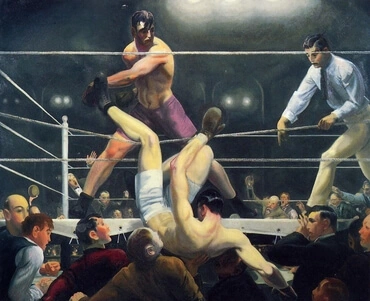394. Saying, How long, O Lord, holy and true, dost Thou not judge and avenge our blood upon them that dwell on the earth? signifies sighings to the Lord, who is justice, respecting the judgment and removal of those who persecute and infest those who openly acknowledge the Lord and are in the life of charity. This is evident from the signification of "crying out and saying, How long, O Lord," as being to pour out to the Lord sighs from grief, for these are the words of those that groan and sigh and supplicate for justice. Also from the signification of "holy and true," as being the One who is Justice; for justice when predicated of the Lord, signifies that He does not tolerate such things, and this because He is holy and true. Also from the signification of "to judge and avenge our blood," as being the judgment and removal of those who persecute and infest those who openly acknowledge the Lord and are in the life of charity. This is the signification of these words because "blood" signifies all violence offered to Divine good and Divine truth, thus to the Lord; consequently violence offered to those who are in the life of charity and faith. To offer violence to these is to offer violence to the Lord Himself, according to the words of the Lord Himself in Matthew:
Inasmuch as ye did it unto one of My least brethren, ye did it unto Me (Matthew 25:40, 45).
That this is signified by "blood" in this sense, may be seen above (n. 329. Also from the signification of "those that dwell on the earth," as being those who were in "the former heaven" that afterwards passed away, for those dwelt in the spiritual world upon the earth, upon mountains, hills, and rocks, while those who acknowledged the Lord and were in the life of charity abode under the earth, or under heaven, and were there concealed and preserved (See above, n. 391, 392).
[2] From this the meaning of these words in their genuine sense can be seen; but no one can know that such things are meant unless it has been revealed to him. For otherwise who could know who are meant by "the souls of those slain," and what is meant by "to avenge their blood upon those that dwell on the earth?" One who does not know from revelation who these are must conclude that the martyrs only are meant; when yet these were not the martyrs, but all such as were persecuted and infested by those who were in the former heaven that passed away; for these were such that they thrust out from themselves all who openly acknowledged the Lord and were in the life of charity, because they were interiorly evil (as has been said above, n. 391, 392).
To this I will add the following: All in the spiritual world who are interiorly evil, however moral a life in externals they may have lived in the world, are utterly unable to tolerate anyone who worships the Lord and lives the life of charity; as soon as they see such, they infest and either do them injury or treat them shamefully. I have often wondered at this, and all who do not know about it must wonder, since these same persons, when in the world, tolerated preachings respecting the Lord and also respecting charity, and themselves talked about these things doctrinally, yet when they become spirits they cannot tolerate them. The reason is that this aversion is inherent in their evil in which they are; for in their evil there is hostility, yea, hatred against the Lord, and also against those who are led by the Lord, who are those who are in the life of charity; but this hostility and this hatred lie concealed in their spirit; consequently when they become spirits they are in them; then that antipathy or antagonism inherent in evil comes forth.
[3] Take, for example, those in whom the love of ruling has predominated; it is their delight to rule over others, and if possible over all; this delight is in them after death, nor can it be removed, since every delight is of the love, and the predominant love constitutes the life of everyone, and this life remains to eternity. When these have become spirits, they strive continually, from the delight of their love, to gain dominion over others as they did in the world; and when they are unable to obtain it, they are angry against the Lord; and as they are unable to harm the Lord Himself, they are angry against those who openly acknowledge Him; for the delight of their love is contrary to the delight of heavenly love; this delight is that the Lord may rule, while the other delight is that they themselves may rule; this is why there is inherent in this delight a hatred against the Lord and against all who are led by Him, who are those who are in the life of charity. From this it can be seen why those who openly acknowledged the Lord and lived the life of charity were delivered by the Lord from the violence of such spirits, and were concealed in the lower earth, and there preserved until the judgment. But after the judgment those who had dwelt above the earth, upon the mountains, hills, and rocks there, who were, as said above, interiorly evil, were cast out; and those who had been hidden under the earth, or under heaven, were elevated and allotted an inheritance in the places from which the former were cast out. From this it can now be more fully comprehended what is meant by what is said to them in the next verse, that "they should rest yet a little time, until they should be fulfilled."







